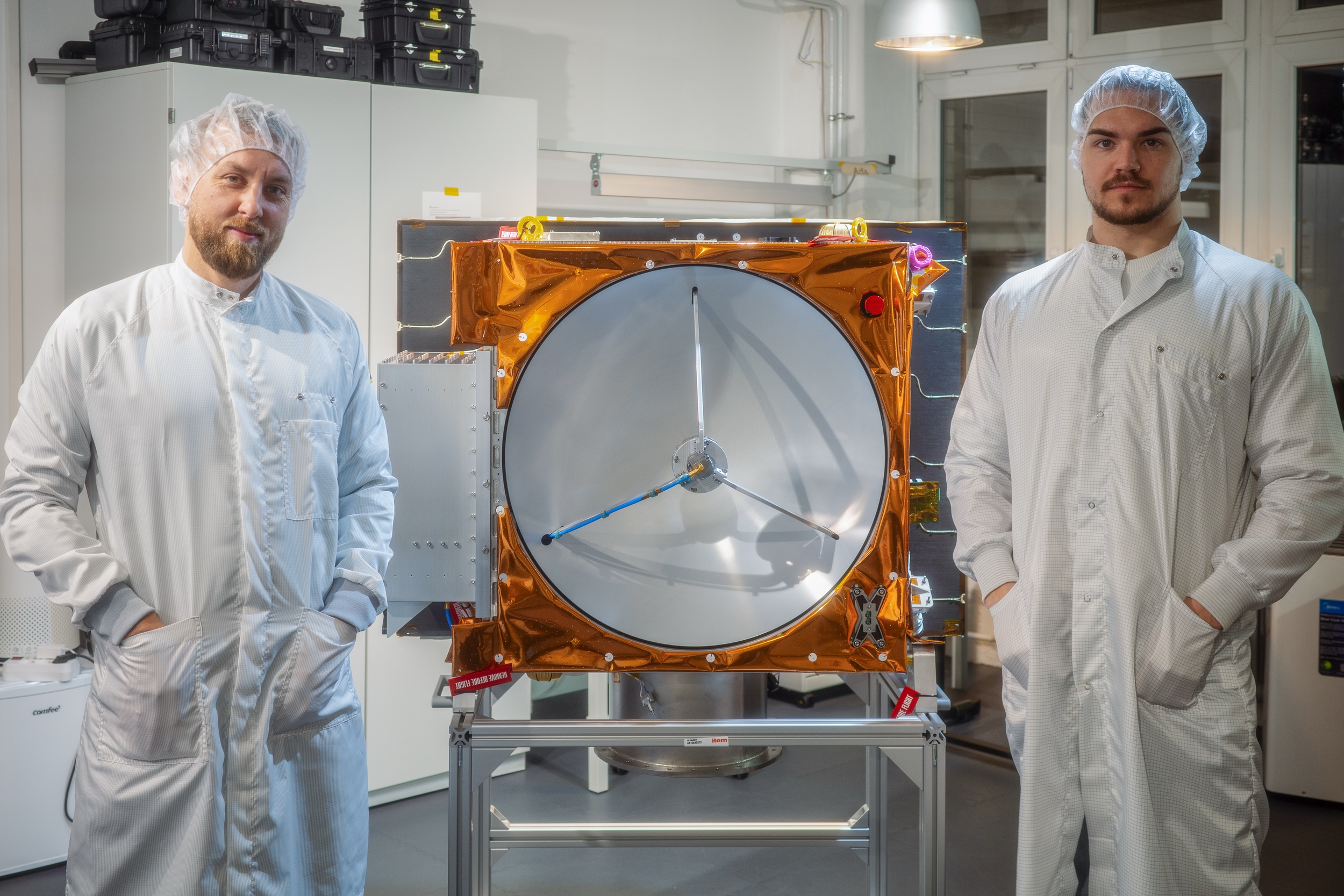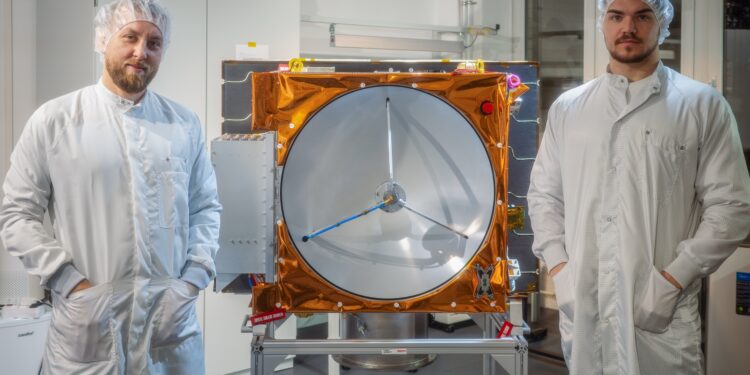
WASHINGTON — German satellite manufacturer Reflex Aerospace has raised 50 million euros ($57.4 million) as it rides a growing wave of interest and investment in European space systems.
The Berlin-based company, which operates a “microfactory” in Munich, announced Nov. 4 that it raised a Series A round it called the largest to date by a European NewSpace company. Human Element, a U.S.-based venture capital fund, led the round, with participation from Alpine Space Ventures, Bayern Kapital, HTGF and other German and European investors.
The funding will allow Reflex to accelerate plans to offer satellite constellations providing optical and radar imagery, space domain awareness and signals intelligence capabilities. The company said it will use the funds to expand manufacturing capacity and aims to launch satellites demonstrating those capabilities by 2027.
Founded in 2021, Reflex launched its first satellite on a SpaceX Transporter mission in January 2025. The 109-kilogram SIGI satellite was built for Media Broadcast Satellite (MBS), a German company. Neither Reflex nor MBS disclosed details about SIGI’s mission other than that it performs remote sensing, although Reflex noted it developed the satellite in just 13 months.
In a statement about the funding round, Reflex emphasized the growing demand for military space capabilities as European governments increase defense spending, including in space.
“Europe cannot afford to remain reliant on external actors for space-based intelligence,” Walter Ballheimer, chief executive of Reflex, said in the statement. “We will invest our own capital, we will work with the best partners in their respective domains, and we will act now because, in the current environment, there is no time to waste.”
The company cited Germany’s plan, announced in September, to spend 35 billion euros on defense space systems through 2030 as an example of that trend. The government has provided few details on how those funds will be allocated.
The European Space Agency also plans to ask its member states at its ministerial conference later this month for 1.2 billion euros for the first phase of the European Resilience from Space program, including 750 million euros to start work on a constellation of optical and radar imaging satellites. Future phases would be funded jointly by ESA and the European Commission, following a model similar to the Galileo navigation and Copernicus Earth observation programs.
That surge in military space spending is drawing private investment into satellite manufacturing. EnduroSat, a Bulgarian satellite maker, raised $104 million in a funding round announced Oct. 30.
“While Europe is rebuilding its sovereign defense capabilities, Reflex is transforming how satellites are built, designing payload-centric buses that can be rapidly manufactured without costly megafactories,” Christian Sullivan, managing partner at Human Element, said in a statement. “Their approach delivers the flexibility and speed needed to meet the growing ISR [intelligence, surveillance and reconnaissance] demand across Germany and allied markets.”
Human Element has invested in several space companies, including Albedo, Firefly Aerospace, and K2 Space, but Reflex is its first investment in a European space company.
Sven Meyer-Brunswick, principal at Alpine Space Ventures, said Reflex is well positioned as Europe boosts space spending and consolidates its industrial base, particularly amid plans by Airbus, Leonardo, and Thales to merge their space businesses into a joint venture.
“Europe is left with too few, slow, and uncompetitive options in its space industrial base,” he wrote.
With Reflex’s experience on the SIGI satellite, he said, “nobody is better positioned than Reflex to serve Europe’s and Germany’s demand to deploy sovereign satellite capabilities rapidly as the bloc tries to catch up.”
